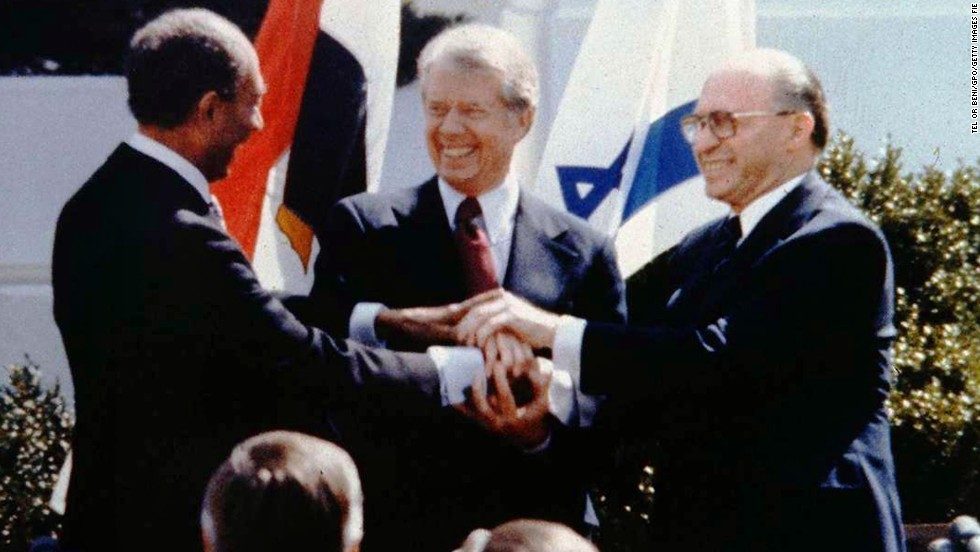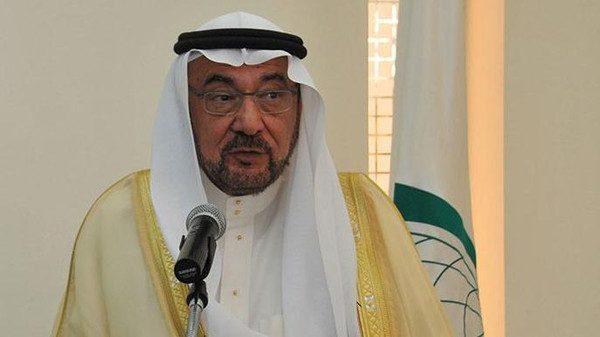
An Israeli Research Center in Tel Aviv has praised the shift in the Egyptian Education system regarding Israel under al-Sisi regime. Haaretz newspaper reported that the new Egyptian textbook that has recently been published encourages glimmers of change.
Dr. Ofir Winter, a research fellow at Israel’s top-ranked Institute for National Security Studies at Tel Aviv University, reported on some unprecedented positive messages about Israel in the ninth-grade Egyptian textbook. Winter approach seeks to compare the new textbook to previous books used during the era of former President Hosni Mubarak. Haaretz reported that some of his findings indicate a new spirit sparkling from the current government of Abdel Fattah al-Sisi.
Winter notes that the older textbook stated the portrait Israel as an aggressor that stole the land from Arab residents of Palestine, and that Zionism was described as a threatening colonialist movement. Winter also stated that” the new book has features that reflect the moderating trend under al-Sisi that has not been seen before in the Egyptian education.”
First, Winter believes that the new textbook reflects a supportive trend toward the peace process with Israel compared to other previous textbooks. As it “portrays Israel as a legitimate peace partner,” Winter said. He added that it stresses the economic value of peace “as a necessary precondition for Egypt’s stability, development, and material prosperity.”
Second, Winter notes that for the first time, the new book includes a picture of former Israeli Prime Minister Menachem Begin next to Egyptian President Anwar Sadat, limits discussion of the Israeli-Palestinian conflict to 12 pages, compared to 32 pages in the older textbook published in 2002, and covers the peace accord between Egypt and Israel in four pages, compared to three in the previous edition.
Moreover, in the new book the peace process is outlined with an analysis of the reasons for Sadat’s peace initiative, an examination of the various clauses in the agreement, and a detailed explanation of why the accord is good for Egypt and the Arab states. Winter believes that the new version of the Egyptian textbook will give new insights to broader common goals between Egypt and Israel today in combating extremism and violence in the region.
Winter spotlighted the usage of some adjective phrases in the new version that infer the new spirit presented under al-Sisi’s rule. For instance, the list of adjectives in the phrase “to establish normal, political, economic and cultural relations between states,” from the previous textbook, the new book adds “friendly.”
Among other notes that Winter mentioned is that the new textbook gives less space to the Palestinian issue. The new version addresses the Palestinian issue in terms of diplomatic process rather than a historical conflict. It tends to highlight the joint effort as the Oslo Accords. Haaretz reported that “The book presents them as the fruits of joint efforts by leaders Shimon Peres and Mahmoud Abbas, but the paragraph about the Camp David accords – which states that they are aimed, inter alia, -at realizing the legitimate rights of the Palestinians – does not appear in the new version.” In addition, the statement that “the road to peace is still far away,” which was written in the older textbook has been deleted in the new one.
The Israeli newspaper considered that the changes presented in the new Egyptian textbook reflect al-Sisi’s demand to reexamine all textbooks in order to remove phrases that glorify violence and Islamic extremism.
On the other hand, the Arab media has highlighted the changes in the Egyptian education as a change towards normalization. On his behalf, the editor of the Qatari newspaper A-Sharq, Jaber al-Harami has responded to Winter’s study, which was quoted in the Arab media. He commented that Egypt’s Sisi, “is changing the curriculum to strengthen the campaign for normalization with Israel.”
In the same context, the Egyptian commentator Mohamed Elmenshawy also expedited to criticize al-Sisi’s educational policy, calling the phenomenon “the new normalization,” aimed at “serving Israeli strategic interests, according to which the Israeli occupation is not the foundation of the Palestinian problem and is not the Arab states’ problem.”
Egypt and Israel have signed a peace treaty in 1979. Before the peace accords in Camp David, the two countries had specifically fought many wars. However, since the peace treaty, wars between Israel and Arab states have stopped as Egypt came out of the scene. Nevertheless, the Egyptian-Israeli peace has remained “cold” in the Egyptian public opinion spectrum. In 2011, Pew survey reported that 98% of Egyptians were holding anti-Semitic sentiments. But since al-Sisi’s military coup in 2013, the Egyptian-Israel relations have witnessed a notable turn in terms of security cooperation in Sinai Peninsula against the Sinai Province, an ISIS affiliate. In his latest speech during the official inauguration of the Assiut power plant, al-Sisi promised Israel “warmer” peace adding that Egypt is ready to mediate to end the Palestinian-Israeli conflict.



